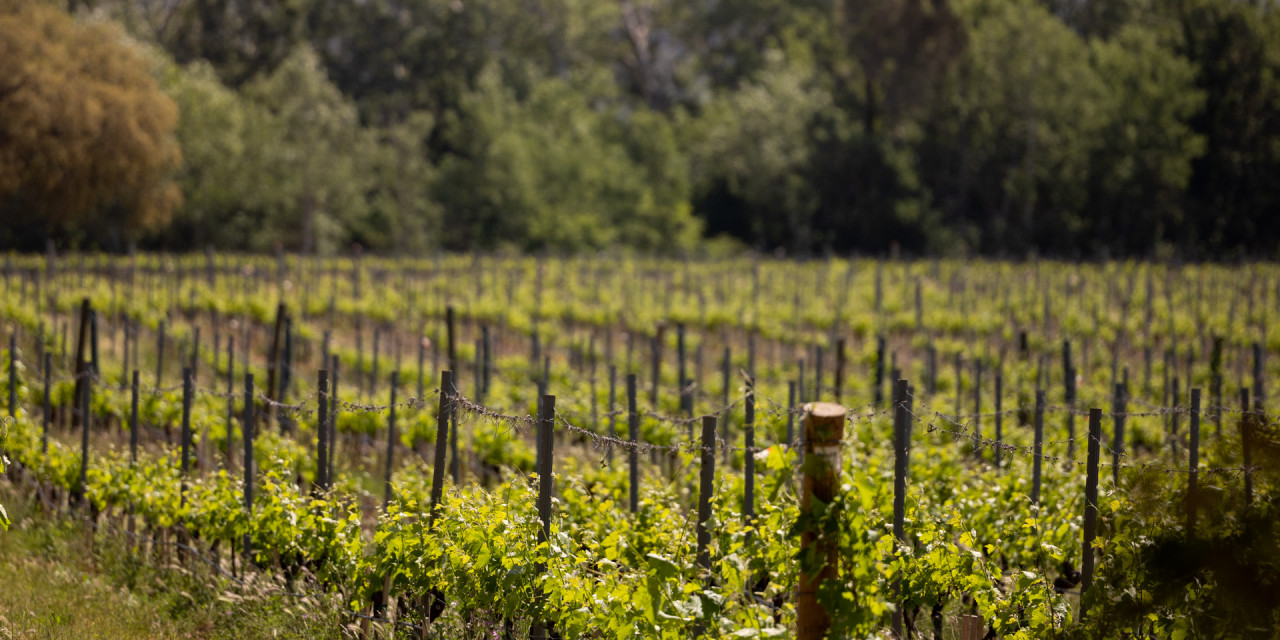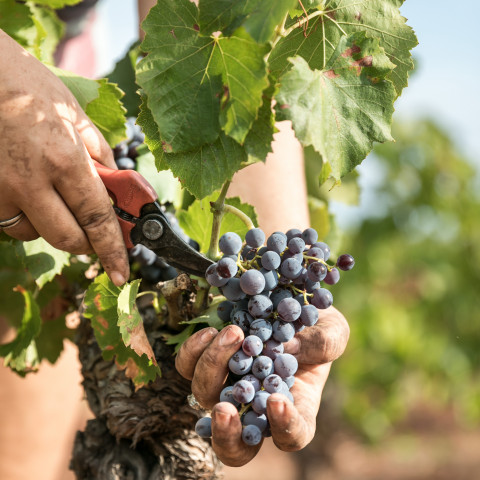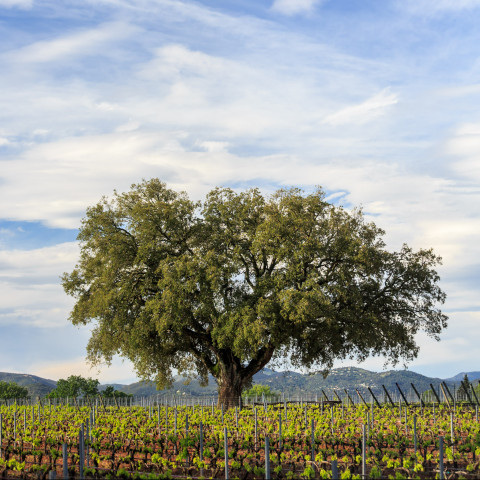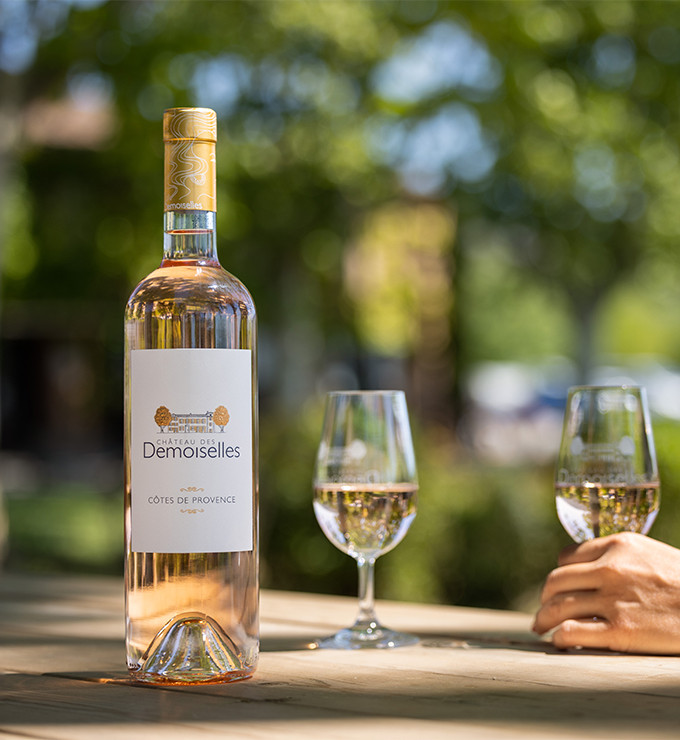
Château des Demoiselles is dedicated to cherishing the environment through biodiversity monitoring, an aware plant health strategy and responsible management of fertilization and irrigation.
After 3 years in conversion, the estate was awarded the "Agriculture Biologique" organic label in August 2022.
Château des Demoiselles' growing practises and winemaking methods have now been officially recognized as organic and compliant with European specifications.
The 2022 vintage celebrated the arrival of Château des Demoiselles' first "Agriculture Biologique" organic wines.
Aurélie Bertin and her teams have always been deeply committed to preserving the environment while offering high-quality products and services.

Sustainable development at the core of our commitments
As a pioneer of Corporate Social Responsibility (CSR), sustainable development forms the beating heart of Château Sainte Roseline's commitments.
We measure the environmental, economic and social impact of every action performed from the vine to the bottle, from eco-designed packaging to preservation of the site's natural and historic legacy, and employee wellbeing...
The Sustainable Winegrowing label
In April 2021, our continuous efforts were rewarded with the Sustainable Winegrowing label - the first Corporate Social Responsibility label curated for the wine industry –, together with the stringent ISO 26000 ("confirmed" level) certification by AFNOR, in recognition of our CSR policy.
Comprehensive and well-rounded, the Sustainable Winegrowing label is the only sustainable development label dedicated to the world of wine.

Numerous everyday initiatives:
- Eco-friendly winegrowing practises that promote soil preservation and quality: use of biocontrolled products, hand weeding, grasses strategically sown under the vines.
- Preservation of biodiversity: respect of ecological corridors to preserve fauna.
- Preservation of heritage: site maintenance, financial support for the municipal Chapel.
- Preservation of natural resources and efficient waste management.
- Ensuring staff wellbeing and quality of life: team-building, training plan, in-house events, initiatives, new break room.
- Product eco-design: lightweight bottles, recycled paper, dry matter optimization.
- The importance of equality: winegrowing is becoming an increasingly feminized profession. Today's team managers are women with previous grass roots winegrowing experience.
